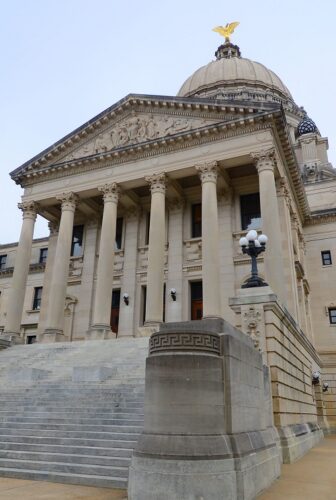Bills that survived or died at the Capitol – Mississippi Today
2.3.22 – Mississippi Today

Tuesday, March 1, was the deadline for committees in the House and Senate to pass out general law bills that originated in the other chamber — a major “killing deadline” that resulted in hundreds of bills dying with or without a committee vote.
The next major deadline for the Legislature is March 9, for the full chambers to take action on the other chamber’s general bills. Most spending and tax bills face later deadlines than general bills. Although bills might have died, there is a possibility some might be revived by inserting language through the amendment process into bills that remain alive.
The 2022 Mississippi legislative session began Jan. 4 and is scheduled to end on April 3.
Here’s a look at general bills that lived or died with Tuesday night’s deadline:
ALIVE
House Bill 530: Teacher pay raise. After a political game of cat-and-mouse, the House killed the Senate’s teacher pay bill on deadline and the Senate, after much fear and loathing, passed the House bill — amended with its own language — to keep a teacher raise alive. Either version would be the largest teacher pay raise in recent history, at more than $200 million.
HB 770 and SB 2451: Equal pay bills. Both bills survived the March 1 deadline. Mississippi is the last state to not provide state legal recourse for employees paid less for the same work based on sex. However, women’s equal pay groups have criticized both the House and Senate bills as having glaring flaws and called for them to be amended. The Senate also amended the House equal pay bill to keep a proposal to reform divorce laws alive.
SB 2113: Prohibiting teaching of critical race theory. This bill has divided lawmakers along racial and party lines. Supporters say it would prohibit the teaching of critical race theory in kindergarten through 12th grade schools and on the university level. State Department of Education officials have said critical race theory, which strives to explore the impact of racial discrimination on various aspects of society, is not being taught in the public schools. Some say the bill is so vague that it is not clear what the impact of the legislation would be.
HC 39: Reviving the state’s initiative process. This proposal would revive the process where citizens can bypass the legislative process and place issues on the ballot for voters to decide. The legislation is needed because the state Supreme Court ruled the initiative process invalid because of a technicality in May 2021.
HB 606: Creating an outdoor stewardship trust fund. This measure, a source of debate between House and Senate for two years, would create a conservation fund to use state dollars to draw down federal wildlife conservation grants — as many other states do. The Senate opposes the House’s plan to use diversion of sales taxes from sporting goods to fund it, and stripped that language and said the Legislature would fund it each year. Proponents of the measure say such a fund needs a steady stream of revenue.
SB 2164: Creating a standalone Department of Tourism. It would be its own department instead of a division within the Mississippi Development Authority. It would also create the Mississippi Department of Tourism Fund and divert a portion of sales tax revenue collected from restaurants and hotels there instead of to MDA.
SB 2273: Allowing employers to vouch for people on parole, The bill allows employs of people convicted of crimes to provide reports to probation officers to prevent the need for the employee to leave work to report to a probation officer.
HB 1029: Increasing broadband access. This bill provides grants for entities willing to expand broadband in rural areas.
HB 1367: Removing racist language from property deeds. This bill provides property owners an easy, inexpensive way to go to chancery court to remove old language found in property deeds that is no longer enforceable and offensive. Language, for instance, forbidding Black families from owning a piece of property can be found in deeds.
DEAD
SB 2643: Divorce law reform. This measure would have brought Mississippi a step closer to having a unilateral no-fault divorce like most other states. Mississippi’s antiquated divorce laws make getting a divorce difficult and expensive, often allows one spouse to delay a divorce for years and leads to spouses and children being trapped in bad family situations. The bill died in House committee without a vote. But the bill’s author, Sen. Brice Wiggins, said the divorce language was inserted into a House equal pay bill that is still alive.
SB 2634: TANF savings accounts. This bill would have provided matching money to help recipients of welfare benefits create savings accounts, and the savings would not affect their eligibility for TANF benefits. The goal of the program, similar to ones most other states have, is to help recipients become financially stable and get off TANF rolls.
SB 2504: Creating state parks division. This measure would have made a state parks division of the Mississippi Department of Wildlife, Fisheries and Parks, with its own director. Advocates say the state’s dilapidated, ill-maintained parks have languished under MDWFP for years.
HB 630: Restoring right to vote. This bill would have clarified people whose felony conviction is expunged under existing law would be eligible to vote.
SB 2261: “Buddy’s Law.” This law, named after a dog who barely survived being severely burned and tortured by a 12-year-old in Mississippi. It would require children who torture dogs or cats to receive psychological evaluation, counseling and treatment.
